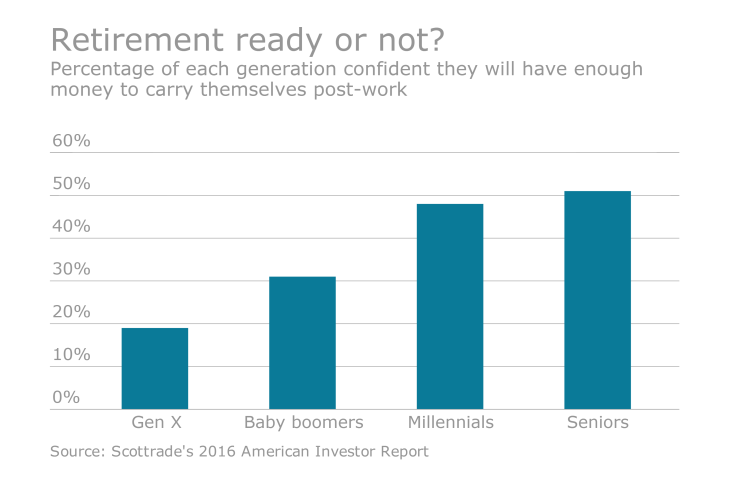The United States is slipping when it comes to retirement security.
The U.S. dropped three notches to No. 17 out of 43 countries in a global ranking of retirement security, according to the fifth annual Global Retirement Index ranking from Natixis Global Asset Management.
A number of factors negatively impacted America’s score, including increased longevity, pension fund shortfalls, old-age dependency and related pressure on government resources. One of the biggest takeaways from the report is that the U.S. spends more than most countries on healthcare but is seeing a drop in its life expectancy. In other words, it isn’t getting the best bang for its buck.
Canada ranked No. 11, while Norway was No. 1 and Switzerland was No. 2. The ranking creates an overall retirement security score for each country from 18 performance indicators that address finances, healthcare, material well-being and quality of life. Countries also are ranked by those four sub-indexes.

Dave Lafferty, chief market strategist for Natixis Global Asset Management, says that when one looks at the country’s prospects for retirement security, they have to keep the long-term prospects for economic growth in mind because “retirement is a process of deferral, putting off consumption today for consumption in the future.”
The better the economic growth is, the better people’s retirement savings portfolios do.
“Since the financial crisis, it is slow growth by historical standards,” Lafferty says, but it is slowly picking up steam. Europe also is picking up steam and emerging markets are getting their act together, he adds. Fears of a slowdown in China have faded a little bit.
“There are limitations in potential GDP. Labor force growth is not enormous and productivity is not high,” he says. Jobs have been picking up a little bit but their impact on the economy won’t be much if the country can’t boost its productivity.
Phillippe Waechter, head of economic research for Natixis Asset Management, agrees that there is low productivity momentum in the U.S. and Europe. He points out that in the 1960s there was very high productivity growth so it was easy to create a retirement that was rich for everyone.
“Now it’s more complicated,” Waechter says. “We have very low productivity growth of 0.5% in most industrial countries when you look at the trends. We are not able to transfer revenues from the present to the future and that’s the main point.”
Dependency ratios are quite poor in the U.S. and Japan, according to Lafferty. There are too many people getting older and not enough young people following behind them supporting their longer life in retirement. If the dependency issue didn’t exist, longer life spans would not be a problem, he says, but the two together create a real problem.
Unfortunately, countries can’t change their birth rates overnight to help boost population to help resolve both the dependency ratio and longevity problems. That’s why many countries in Europe have turned toward immigration, trying to attract young people from other countries to move there and help boost their economies.
Italy and Germany have been confronting these same issues, Waechter says. Germany has offered free college education to anyone who wants to move to Germany and take advantage of it. Immigration is one way to boost productivity. In countries like Japan, which are against immigration, they will have to boost productivity through innovation, which is complicated, Waechter says.
Raising the retirement age is one solution to help boost retirement security. Another is to require employees to put money away in their pension plans, not solely rely on employers to fund them.
Given the fact that people are living longer, Waechter says that countries should consider extending the retirement age to 70. Some people spend more years in retirement than they did in the workforce.
Lafferty points out that older people have experience and knowledge going for them and are therefore more productive than their younger counterparts. Keeping on older, more experienced workers, could be an advantage, especially when it comes to mentoring younger workers and passing on institutional knowledge.
He adds that Social Security was introduced when people were living to their early 60s. Now people are living 20 years longer so it makes sense to raise the retirement age.
“The real problem with that is it is not a real vote getter when you’re out campaigning, to tell people they have to work longer,” he says. “It is not a great political solution.”
People live longer when they feel more productive, he says. “As people work longer and maintain their productivity, they maintain their vibrant lifestyle and live longer.”





